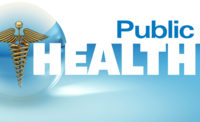What your kids should be drinking

Many of the products targeted to children, such as toddler formulas, caffeinated beverages and even plant-based/non-dairy drinks like rice and oat milk are NOT on the list of recommended beverages for kids just released by leading medical and nutrition organizations.
What did make the list for the birth-to-five-year-old set: breast milk, infant formula, water, and plain milk.
The recommendations were developed as part of an unprecedented collaboration by experts at the Academy of Nutrition and Dietetics (the Academy), American Academy of Pediatric Dentistry (AAPD), American Academy of Pediatrics (AAP), and the American Heart Association (AHA) under the leadership of Healthy Eating Research (HER), a leading nutrition research organization, and with funding from the Robert Wood Johnson Foundation (RWJF).
“Early childhood is an important time to start shaping nutrition habits and promoting healthy beverage consumption,” said Megan Lott, MPH, RD, Deputy Director of Healthy Eating Research, which convened the expert panel.
Avoid sugar-sweetened drinks
The experts caution against beverages that are sources of added sugars in young children’s diets, including flavored milks (e.g., chocolate, strawberry) and sugar- and low-calorie sweetened beverages.
“As a pediatrician, I know what a child drinks can be almost as important as what they eat, in terms of a healthy diet. This is especially true for very young children,” said Natalie Muth, MD, who represented the American Academy of Pediatrics on the expert panel. “We know that children learn what flavors they prefer at a very early age—as young as 9 months—and these preferences can last through childhood and adulthood. That’s why it’s important to set them on a healthy course.” “Nearly 40,000 people in the U.S. die each year from heart problems due to overconsumption of sugary drinks. This is unhealthy and unacceptable, and the seismic shift in our culture needed to change this status quo must start with our kids,” said Nancy Brown, CEO of the American Heart Association.
Healthy beverage recommendations:
The recommendations outlined below by age are intended for healthy children in the United States and do not address medical situations in which specific nutrition guidance is needed to manage a health condition or specific dietary choices such as abstaining from animal products.
As always, consult with your health care provider about your child’s individual needs.
- All children 5 and under should avoid drinking flavored milks, toddler formulas, plant-based/non-dairy milks*, caffeinated beverages and sugar- and low-calorie sweetened beverages, as these beverages can be big sources of added sugars in young children’s diets and provide no unique nutritional value.
- 0-6 months: Babies need only breast milk or infant formula to get enough fluids and proper nutrition.
- 6-12 months: In addition to breast milk or infant formula, offer a small amount of drinking water once solid foods are introduced to help babies get familiar with the taste – just a few sips at mealtimes is all it takes. It’s best for children under 1 not to drink juice. Even 100% fruit juice offers no nutritional benefits over whole fruit.
- 12-24 months: It’s time to add whole milk, which has many essential nutrients, along with plain drinking water for hydration. A small amount of juice is ok, but make sure it’s 100% fruit juice to avoid added sugar. Better yet, serve small pieces of real fruit, which is even healthier.
- 2-5 years: Milk and water are the go-to beverages. Look for milks with less fat than whole milk, like skim (non-fat) or low-fat (1%). If you choose to serve 100% fruit juice, stick to a small amount, and remember adding water can make a little go a long way!
See the full guidelines and learn more at http://www.healthydrinkshealthykids.org. This site also contains a set of parent-focused one-minute videos, in English and Spanish, covering all the different topics included in the guidelines such as tips for swapping out sugary drinks and understanding different types of milk.
To develop the evidence-based recommendations, HER conducted an extensive review of scientific literature, existing guidelines from national and international bodies, and reports on early childhood beverage consumption. It also convened an expert panel of representatives from AAP, AHA, the Academy, and AAPD and a scientific advisory committee whose members discussed and reviewed the preliminary and final recommendations. Panelists and committee members were experts in pediatrics, early childhood nutrition, dentistry, and dietary and nutrition guidance.
*Notes: Evidence indicates that, with the exception of fortified soymilk, many plant-based/non-dairy milk alternatives lack key nutrients found in cow’s milk. Our bodies cannot absorb nutrients in these non-dairy milks as well as they can from regular milk. Non-dairy milks may be a good choice if a child is allergic to dairy, lactose intolerant, or is in a family that has made specific dietary choices such as abstaining from animal products. Be sure to consult with your health care provider to choose the right milk substitute to ensure that your child is still getting adequate amounts of the key nutrients found in milk, such as protein, calcium, and vitamin D, which are essential for healthy growth and development.
Looking for a reprint of this article?
From high-res PDFs to custom plaques, order your copy today!






